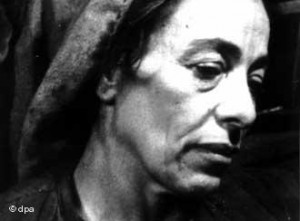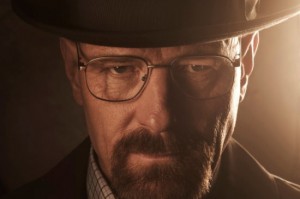In The Death of Tragedy (1961), George Steiner argued that tragedy was not possible in the modern world. The liberal worldview, he argued, is incompatible with tragedy, circumscribing the irrational and unjust suffering with an optimism for reform and justice. The combination of the brutal and the fickle found in Ancient Greek and Jacobean theatre became impossible for writers imbued with the sense of progress typical of post-Enlightenment thought.
Marxists, he thought, were typical of this tendency, citing Soviet Commissar for Education Anatoly Lunacharsky’s assertion that in Communism there would be no tragic drama. “The tragic theatre,” Steiner says, ” is an expression of the pre-rational phase in history; it is founded on the assumption that there are in nature and in the psyche occult, uncontrollable forces able to madden or destroy the mind.” It can be treated as an historical relic because “tragedy can occur only where reality has not been harnessed by reason and social consciousness.”
Breaking Bad offers a glimpse of tragedy reborn. Walter White’s ascent from non-descript family man to international drugs kingpin leaves many bodies in its wake. Violence and cruelty does not come from Gods or spirits, but from ourselves, from the gouging and clawing that clears the path ahead. Chaos is self-interest writ large.
White, like Steiner, draws on Nietzsche’s views on tragedy. In The Death of Tragedy, the German philosopher outlined a theory of drama as crafted by the conflict and synthesis between elemental forces of chaos and control. Indeed, the writers must have had a copy of The Death of Tragedy on their bedside tables, for White/Heisenberg is a perfect representation of the Apollonian and the Dionysian; the chaotic and the rational in tension throughout the series.
At his best, White is the architect of planned chaos, unleashing a stream of violence for a carefully directed end. We can think of the Nazis unleashed upon informants, murdering them brutally in two minutes. Or we can think of the death of Frey, the end of a long string of events, initiated by White’s careful and deliberated poisoning of a child. But he is not free from irrationality himself, as his pride and ego drive him into conflict with Gus and Frey and reactivating Hank’s suspicions again and again.
The chaos threatens to consume him as well, most clearly in To’hajiilee and Ozymandias, as the neo-nazis, chaos incarnate, spin out of White’s control, murdering Hank and Steve Gomez, forcing White to flee, alone. By any terms, this offers the greatest tragic potential; all his violence, murder and deceit has gained him nothing, he has lost his money, his family and he will die alone and unloved.
But this is not the direction that prevails. White returns to town, confesses his sins to his wife, and sets out to right the wrongs his pride has wrought. With Badger and Skinny Pete (surely no better exemplars of the irrational, or at least the sub-rational, in this drama), he ensures his legacy. With feigned weakness, he revenges himself on Lydia. With improbably effective DIY munitions, he overcomes the Nazis and saves Jesse, the latter finally freeing himself by refusing his part in White’s tragedy. White’s final actions mean that his life and work were not for nothing. Death for his sins, but his dearest will escape with the wages.
 During a consideration of Brecht’s Mother Courage at the end of The Death of Tragedy, Steiner retreats a little from his obituary, allowing room for a modern reinvention of tragedy. Writing of Helene Wiegel’s performance in the title role, he recounts:
During a consideration of Brecht’s Mother Courage at the end of The Death of Tragedy, Steiner retreats a little from his obituary, allowing room for a modern reinvention of tragedy. Writing of Helene Wiegel’s performance in the title role, he recounts:
“As the body of her son was laid before her, she merely shook her head in mute denial. The soldiers compelled her to look again. Again she gave no sign of recognition, only a dead stare. As the body was carried off, Weigel looked the other way and tore her mouth wide open. The shape of the gesture was that of the screaming horse in Picasso’s Guernica. The sound that came out was raw and terrible beyond any description I could give of it it. But, in fact, there was no sound. Nothing. The sound was total silence. It was silence which screamed and screamed through the whole theatre so that the audience lowered its head as before a gust of wind. And that scream inside the silence seemed to me to be the same as Cassandra’s when she divines the reek of blood in the house of Atreus. It was the same wild cry with which the tragic imagination first marked our sense of life. The same wild and pure lament over man’s inhumanity and waste of man. The curve of tragedy is, perhaps, unbroken.”
Walter White, dying quietly on the floor, does not share Cassandra’s lament, Courage’s silent scream or even Marlo’s incisive ‘But it’s the other way’. As the music fades in and the picture fades out, we are left with a sense of closure, rather than insight. Having restored meaning to his deeds, Walter’s death completes the containment. Instead of Courage, always marching on, carrying her dreadful knowledge with her, we have Jesse, liberated, and speeding the hell away.











